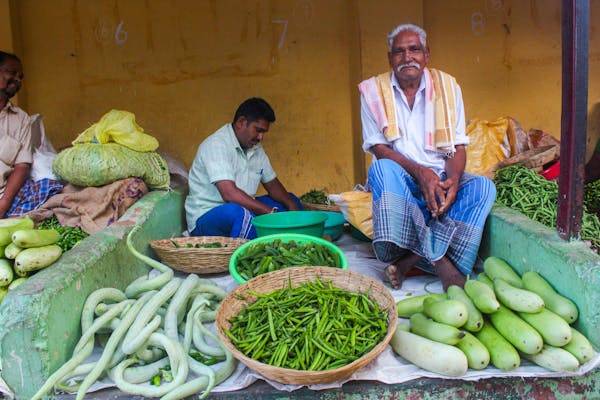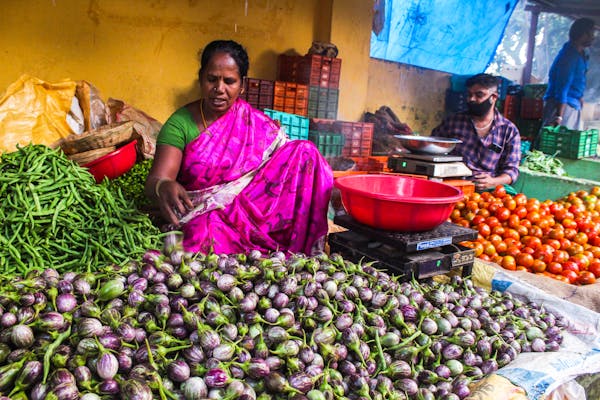Navigating Food Accessibility: Does Thrive Market Accept EBT
Thrive Market Accept EBT
food
Table of Contents
As societal conversations around equitable access to healthy food gain traction, it becomes increasingly vital to analyze how various platforms cater to diverse financial circumstances. One pressing question in this discourse concerns Thrive Market, an online hub renowned for its selection of organic and wholesome products: Does Thrive Market accept Electronic Benefit Transfer (EBT) payments? In this article, we delve into this inquiry, shedding light on Thrive Market’s stance on EBT acceptance and its implications for food accessibility.
Understanding Thrive Market’s Mission
Founded in 2014, Thrive Market prides itself on being an online retailer dedicated to making healthy living accessible and affordable for all. Offering a wide array of organic, non-GMO, and sustainable goods spanning pantry essentials to beauty and household items, Thrive Market aims to grant consumers access to high-quality products at discounted rates.
Navigating the EBT Dilemma
EBT, an acronym for Electronic Benefit Transfer, serves as the mechanism through which states distribute benefits to eligible individuals and families. Typically funded through initiatives like the Supplemental Nutrition Assistance Program (SNAP), these benefits prove invaluable to millions grappling with food insecurity. However, not all retailers facilitate EBT payments, potentially constraining the choices available to beneficiaries and exacerbating disparities in accessing nutritious food.
EBT Acceptance: The Thrive Market Perspective
Addressing the crux of the matter: Does Thrive Market accept EBT? Regrettably, as of the current moment, the answer is negative. Unlike traditional brick-and-mortar grocery stores often participating in SNAP, Thrive Market lacks the infrastructure necessary to process EBT transactions. Consequently, individuals reliant solely on EBT benefits might find themselves unable to utilize Thrive Market’s offerings, inadvertently missing out on its diverse product range.

Implications for Food Accessibility
The absence of EBT acceptance at Thrive Market raises pertinent concerns regarding food accessibility. While the platform champions health and affordability, its exclusion of EBT as a payment option erects a barrier for low-income individuals and families dependent on government assistance for groceries. This exclusion underscores the intersectionality between socioeconomic status and food access, emphasizing the imperative for inclusive solutions in promoting healthy living.
Exploring Remedial Measures
Confronted with the challenges stemming from EBT non-acceptance, it becomes imperative to explore remedial actions conducive to fostering food accessibility for all. One avenue involves advocating for policy reforms incentivizing online retailers, like Thrive Market, to integrate EBT payment options. By broadening the accessibility of nutritious food choices, such initiatives hold promise in mitigating systemic inequalities and empowering individuals to make nourishing decisions.
Additionally, Thrive Market itself possesses the agency to play a proactive role in fostering inclusivity by exploring avenues to accommodate EBT payments. Whether through forging partnerships with organizations specializing in EBT processing or developing internal systems tailored to government assistance programs, Thrive Market stands poised to demonstrate its commitment to equitable access to healthy living.
Conclusion: Towards an Equitable Food System
In the quest for a fairer food system, it is imperative to acknowledge the nexus between affordability, accessibility, and health. While platforms like Thrive Market present a convenient avenue for procuring high-quality products, the absence of EBT acceptance underscores the ongoing struggles faced by marginalized communities in accessing nutritious food options. By acknowledging these barriers and actively pursuing solutions, we inch closer to a future where everyone, irrespective of socioeconomic status, has the opportunity to thrive. Let us collectively advocate for inclusive policies and practices that prioritize the well-being of all individuals and engender a more just food system.








